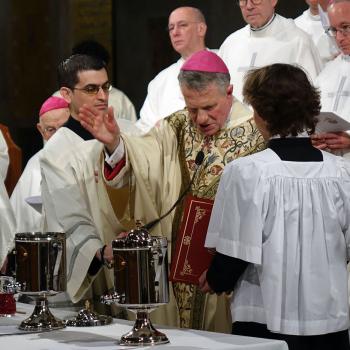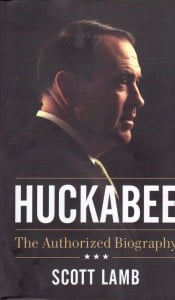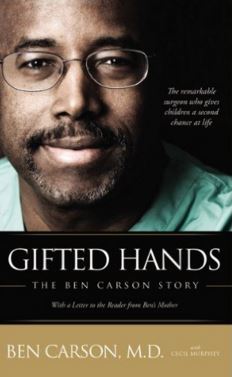I adored th[e] simplicity—the absolute honesty and cleanness of science. I respected that it left no room for fantasy or for sloppy thinking. If a fact could be established as tangible and trustworthy, it was accepted. If not, then it was rejected. This approach left very little room for the soul and the spirit, for the continuing existence of a personality after the brain that supported it stopped functioning. It left even less room for those words I’d heard in church again and again: “life everlasting.”
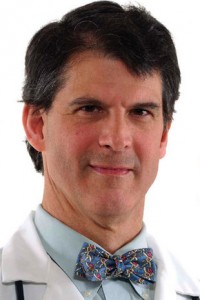 Dr. Eben Alexander was an atheist. After 25 years as a respected academic neurosurgeon, Dr. Alexander could not reconcile his knowledge of neuroscience with any belief in heaven, God, or the soul. He had heard of near-death experiences, but they seemed implausible and, therefore, uninteresting.
Dr. Eben Alexander was an atheist. After 25 years as a respected academic neurosurgeon, Dr. Alexander could not reconcile his knowledge of neuroscience with any belief in heaven, God, or the soul. He had heard of near-death experiences, but they seemed implausible and, therefore, uninteresting.
Then his own brain was attacked by an E. coli bacterial infection, a rare form of meningitis which is fatal in more than 90% of cases. For seven days, he lie comatose in Lynchburg General Hospital, brain activity reduced to pure physical impulses. The part of the brain which is the locus of higher functions such as memory and intentional decision-making or logic was completely inactive.
Doctors, certain that his death was inevitable, wanted to discontinue treatment with antibiotics, and encouraged his wife to prepare for a final goodbye. But Eben Alexander didn’t die; defying medical predictions and confounding his doctors, Dr. Alexander awoke. Even more surprising, his cognitive function returned rapidly. The doctors’ dire predictions of serious brain injury were quickly disproven, as language and memory and emotion returned.
Before his illness, Dr. Alexander’s rational approach had led him to believe that the universe had evolved by happenstance without the aid of a Creator. During his coma, though, he had seen for himself that heaven was real. He had entered a new realm, a spiritual realm, where music and light combined in unimaginable beauty.
Something had appeared in the darkness. Turning slowly, it radiated fine filaments of white-gold light, and as it did so the darkness around me began to splinter and break apart. Then I heard a new sound, a living sound, like the richest, most complex, most beautiful piece of music you’ve ever heard. Growing in volume as a pure white light descended, it obliterated the monotonous mechanical pounding that, seemingly for eons, had been my only company up until then. …Then, at the very center of the light, something else appeared. I focused my awareness, hard, trying to figure out what it was. An opening. I was no longer looking at the slowly spinning light at all, but through it….
 I recall that Eben Alexander’s dramatic story Proof of Heaven: A Neurosurgeon’s Journey into the Afterlife
I recall that Eben Alexander’s dramatic story Proof of Heaven: A Neurosurgeon’s Journey into the Afterlife elicited a small firestorm of television and radio interviews when it was released in 2012. Myself, though, I stumbled across it in the airport bookstore when, having packed hastily, I forgot to bring a book to read on my flight from Detroit to Phoenix. For the next five hours, I lived in its pages—smiling at Eben’s memory of life in the afterworld, warmed by his recollections of vibrant colors and rich music, of beauty, and of the Creator whom he called simply “Om”.
I did notice that Dr. Alexander, while he wrote of attending an Episcopal church and gratefully received the Eucharist, said nothing about meeting Christ during his adventure outside of the bounds of time. I was not troubled by that. He had not actually entered into full union with God and with the saints—only with the messenger who turned out to be the sister whom he’d never met. And much of what he discovered regarding one’s relationship with God was consistent with Catholic teaching.
Proof of Heaven will surely be a comfort to those who are facing the loss of a loved one, or who can only watch as a friend or relative slips from this life into coma and into eternity.
It will be a strong witness to those in the medical community who, like Dr. Alexander before his illness, imagine that they know better than their patients.
And it will be a joyful read to the rest. I am happy to recommend it.
* * * *
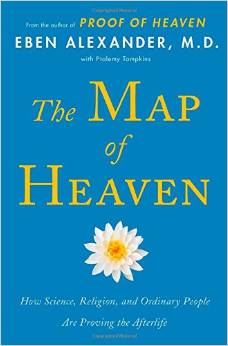 Oh, and there’s more! If you’ve already enjoyed Proof of Heaven, you’ll want to read Dr. Alexander’s most recent book, The Map of Heaven: How Science, Religion, and Ordinary People Are Proving the Afterlife.
Oh, and there’s more! If you’ve already enjoyed Proof of Heaven, you’ll want to read Dr. Alexander’s most recent book, The Map of Heaven: How Science, Religion, and Ordinary People Are Proving the Afterlife.
In The Map of Heaven, Dr. Alexander shares some of the stories that the people have told him and links them up with what the world’s spiritual traditions have to say about the journey of the soul.
* * * * *
Both of these excellent titles by Dr. Eben Alexander are included in this month’s Patheos Book Club.





